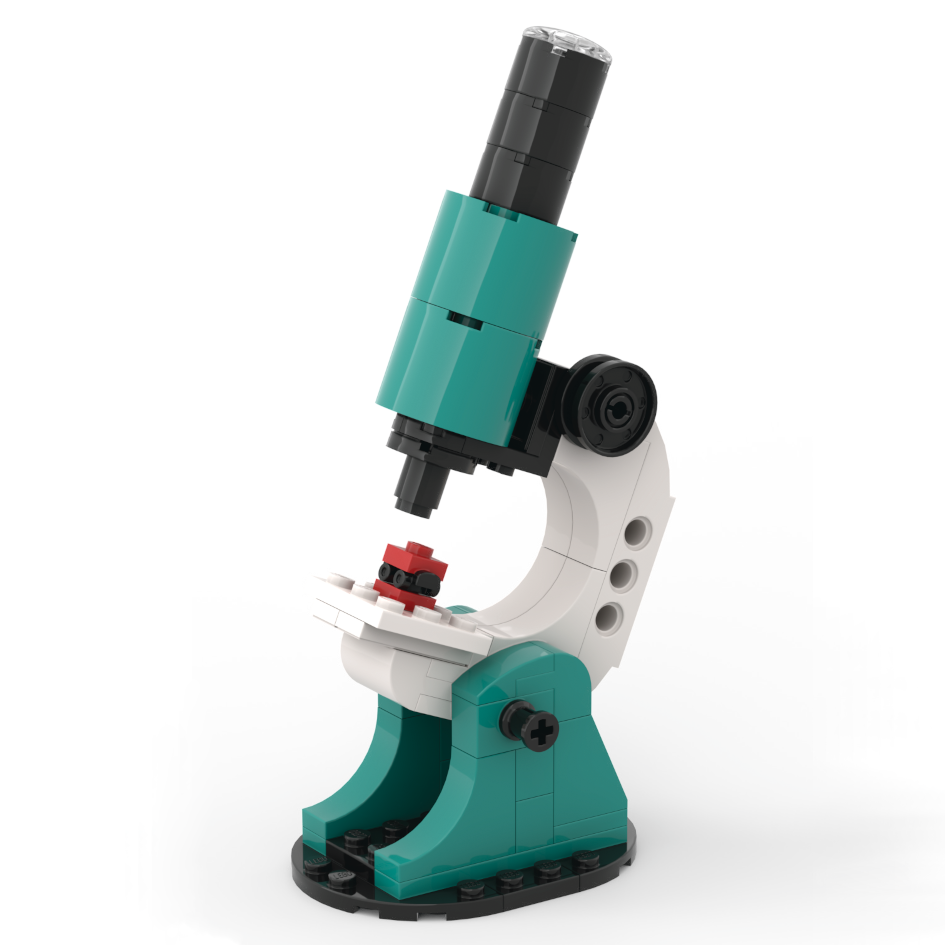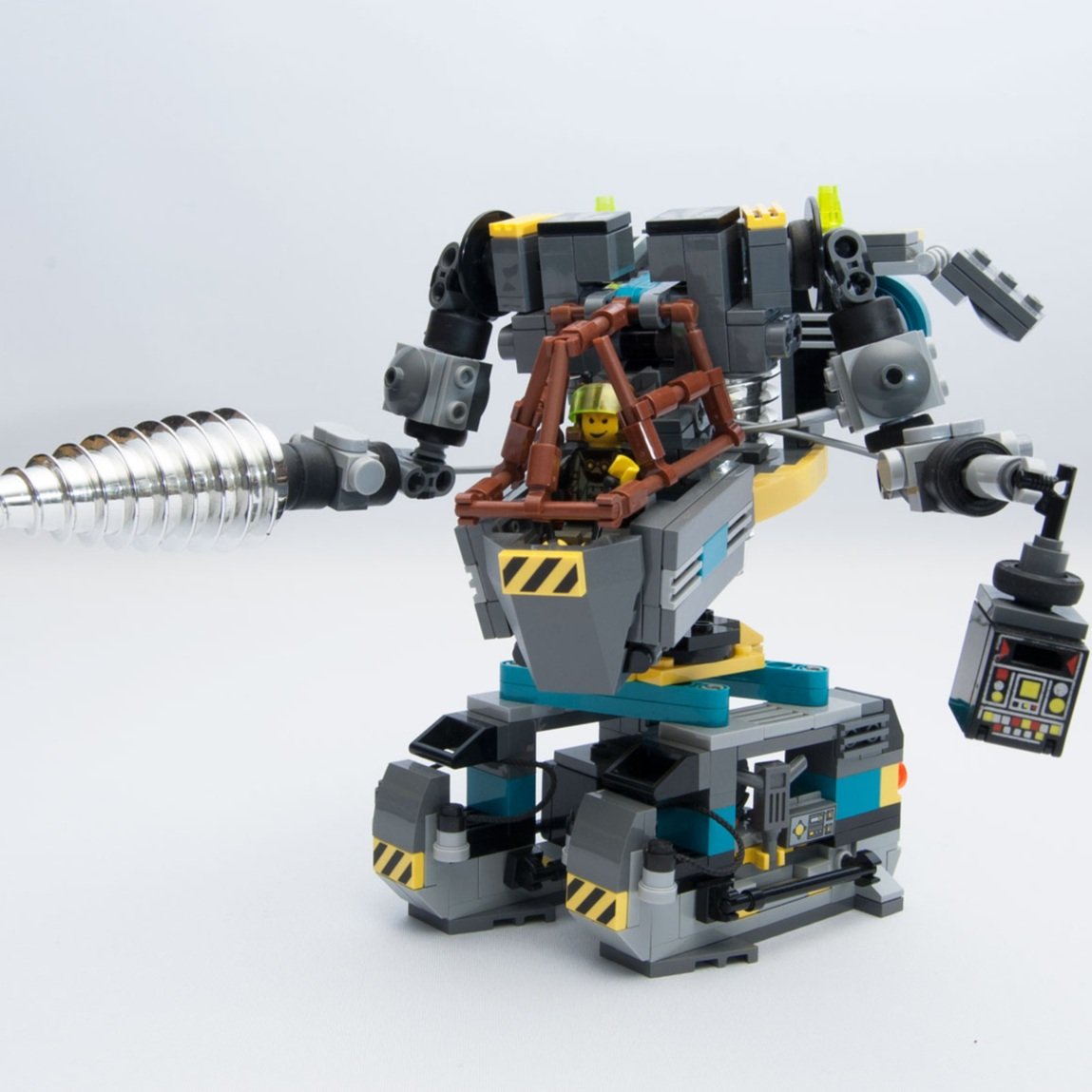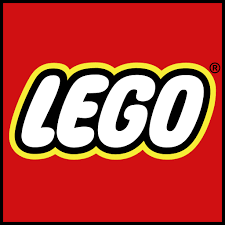Welcome to the Chibi Gang! An Interview with Justin Chang
/A few months after I wrote our deep-dive article into the world of LEGO chibi-style building, I started noticing some very high-quality chibi builds appearing online by a builder unknown to me. At first, I was dismayed at the thought of not having included them among the builders referenced in the article. However, to my personal relief, I learned that they had only started sharing chibi builds online after the article had been published. Whew 😅.
That builder’s name is Justin Chang, but you are likely more familiar with his online alias of lavishlump (Instagram). I reached out to Justin, who later told me that he stumbled across our chibi article just as he was learning the ropes of chibi building (and trying to reverse-engineer Mike’s and Javier’s builds himself). Now after having quite a few chibi builds to his name, he revisited that article and was “amazed by how much more this article resonates with me today; the height creep, the importance of each individual piece used, choosing to prioritize fidelity or streamlining—everything holds true! I’d go as far as to deem the article required reading for anyone interested in giving anime-inspired character building a go.”
Well, flattery will get you everywhere with me. I decided that this would be the perfect opportunity for us to feature Justin on BrickNerd, highlight some of his anime-inspired builds, and check back in with the “chibi gang.”
An Interview with Justin Chang
Ted: Hey there Justin. We are overdue on writing another BrickNerd article about chibi building. Seeing that you are one of the newest members of the “chibi gang,” I thought I might reach out to get your perspective (and of course highlight some of your recent builds).
Justin: What an absolute honor! Yeah, I’d totally be down to work with you on a follow-up article!
Ted: Awesome! So to start, tell us a little bit about yourself. Where do you live? What type of work do you do when you are not building with LEGO?
Justin: I’m Justin Chang, but folks will recognize me online as “lavishlump.”(Instagram) I was born in Taiwan but raised in California where I still live today. For work, I move between various local dental clinics, either working chairside or as a lab technician depending on a clinic’s needs. Though very soon, I plan on returning to school to further my career.
Ted: Ah, our resident dentist Bart will be happy to hear there’s another person out there trying to keep us from using our teeth as brick separators… And as for your MOC building career, I saw that you recently celebrated your one-year anniversary of sharing your chibi builds with the online community. Had you been building LEGO models prior to that?
Justin: Although I have only been designing MOCs for just over a year now, I’ve been playing with LEGO as early as I’ve been capable of forming memories! While I cannot pinpoint my exact first set (a Duplo set most definitely), LEGO has been the toy I exclusively ask for every holiday season. And now as a custom model builder, sets are still the best educational tool to supplement my MOC-building skills.
My build of Koishi, where you noticed my “one year anniversary” post on Flickr and Instagram, was my first build using the chibi frame that Mike developed. However, the honor of my very first MOC actually belongs to my Cirno Fumo, which I had posted on Twitter a few months earlier (I often don’t post my builds chronologically as I complete them).
Justin's first MOC: Cirno Fumo
Ted: And it seems like you take most of your MOC-building inspiration from anime and other Japanese pop culture?
Justin: So you noticed 😅. It’s probably no surprise to anyone who’s seen my LEGO work that I am especially fond of the Touhou Project series of Japanese shoot ‘em-up games. To me, Touhou is just the perfect blend of all my favorite things: anime, Eastern mythology, and boppin’ music. I’m still as passionate about the franchise now as when I was first introduced to it five years ago.
Ted: I’m curious what type of reference materials are you using to build these Touhou characters? Are they mainly screen captures from the game, or are there other materials to reference?
Justin: Due to the popularity of Touhou, there are actually quite a lot of references you can find, from the games, comics, or even merchandising. For example, this is the official artwork for the character Junko from Legacy of Lunatic Kingdom, the 15th installment in the Touhou Project series. My depiction has her performing one of her signature attack patterns from that game.
I also refer to actual figurines alongside reference images. In this case, the official Flandre Nendoroid has proven very useful in the design process of her LEGO counterpart. I used it in tandem with in-game artwork from the mobile game Touhou LostWord.
Ted: You mentioned stumbling across our prior chibi article while still learning the ropes. Some of the key points that you said stuck with you were things like "height creep, the importance of each individual piece used, and choosing to prioritize fidelity or streamlining." My impression of your chibi style is that it leans towards Javier's streamlined style, but maybe trending towards Mike's shorter body height. Would you tend to agree? Do you have a preference towards either, or is it situational?
Justin: Yes, both Mike and Javier have, and continue to be, huge inspirations in my MOC-building journey. I’d go so far as to say that if it weren’t for discovering their works, I would have very likely stopped with my first MOC, which at the time was simply fulfilling a bucket list item of “make my own custom LEGO model.” Being inspired by both of them, it’s only natural that both of their respective philosophies are represented in my own stuff.
I'm inclined to streamline my designs, as I feel that is one of the strengths of working with LEGO as a medium. From a visual standpoint, LEGO naturally has a very toy-like look—the geometry of its pieces comprise simple and easy-to-understand shapes, and their plastic sheen tends to keep it from representing something a bit more realistic in texture. The general chibi aesthetic aligns well with this design language of simplicity. Trying to fight against it can yield some very visually jarring results, regardless of whether the design is rendered out of LEGO pieces or another medium altogether.
From a technical, LEGO builder’s perspective, unrestrained detail can no doubt be impressive, but doing so would often require the use of some very delicate (i.e. illegal) building techniques. This is especially true at the chibi scale where there's only so much space to work with. And as someone who likes to swap around my MOCs as desk toys, that'd be a no-go!
Ted: Ah-ha! I had noticed that you seem to put a great amount of attention towards building detailed display stands for your models. If you are displaying them on your desk, it’s only natural to put so much effort into them. I think you have really taken chibi building to the next level with your presentation, not only with the display stands but also your addition of photo effects. They really add so much to the personality and energy of your characters.
Do you conceptualize those display bases at the same time as you are building your figures?
Justin: Thanks for noticing! I do indeed take consideration in designing a stand that compliments each character I am building. It’s like with actual anime figurines—a discreet, circular slate is nice and all, but what’s even better is an inviting environment which enhances the figure presentation. Anyone who plays gacha games will also likely agree with this sentiment. The character art for such games are always accompanied with a vibrant background, with the more desirable characters having the most elaborately designed environments. Specific to LEGO, the elaborate bases make for a good opportunity for me to try building things outside my comfort zone, such as microscale.
Ted: Have you ever had to modify your figure build to work with the display stand?
Justin: When conceptualizing, I often already have an idea of how a character will interact with their environment, which predefines the character’s pose and the overall composition. However, once I am actually building the model, the figure construction will always take priority over the display stand. I am much more likely to modify the stand before I modify the figure itself.
Specific to the Touhou Project games, the vast majority of the cast can fly. As such, the main connection point I have to consider is a spot between the back of a character and a transparent support beam suspending them in the air. So the impact of any needed modification to the figure itself would really just be limited to that connection point.
Ted: Having built chibi figures over the last year or so now, are there any other chibi building tips that you would highlight?
Justin: The main thing I will say is that the more I learn about what's possible with the LEGO system, the more I’d like to try those new techniques in my builds. And for better or worse, that often means the need to use more space, thus the inevitable height creep! As I mentioned earlier, it’s a bit of an open secret that I don’t post my builds chronologically as I complete them.
For example, a relatively recent character I posted online, the magician Patchouli, was designed only weeks after my very first chibi. Patchouli ended up laughably shorter than canonical pipsqueaks Remilia and Flandre, the latter two characters I would design many months later. As such, I had to give Patchouli the height boost she sorely needed before finally posting her.
This also highlights another very important consideration I make: how tall each character is relative to each other. If it just so happens that a character I’m making is on the shorter side, that character might end up more reminiscent of Mike’s designs by sheer happenstance. I could go on and on about this, but this would end up a novella rather than an article! So to go back and answer your question about if I lean towards Javier’s or Mike’s chibi style, it’s a mix of both!
Ted: Other than on your desktop, have you ever displayed your builds publicly? Like at a local LUG meeting or at a LEGO convention?
Justin: I have not yet displayed my works publicly before, or attended a LEGO convention. That being said, it’s definitely something I’d love to do in the future. So far, the better part of my MOC-building tenure has been spent working in a bubble. For a time, I was quite content with that. But then more recently, as other builders online have reached out to me, I've begun to realize what I’ve been missing out on. These days, I find myself chatting with fellow builders as much as I do actually building! There is a lot of meaning in having these interactions, and it’s something I would love to eventually experience in-person.
Ted: Are Mike and Javier some of those builders who have reached out to you online? I assume you must have been in direct contact with them by now, being in the “chibi gang”?
Justin: Oh yes! As I mentioned earlier, both Javier and Mike have been big inspirations in my MOC building journey. Whenever either Mike or Javier engaged with my stuff on socials, I’d gleefully announce “Senpai noticed me!” in one of the anime-builders group chats. I still get that feeling of validation to this day.
We now have a new Discord group for anime builders, that Javier and Mike are a part of as well as other members of the “chibi gang” (as Javier so fondly calls us). It is still my absolute pleasure to chat as often with them there as I do! For any builders interested in joining us, this is the invitation link to our Discord Server. There are plenty of other types of anime inspired builders in the group as well, beyond just chibi builders (gundam mecha, vignettes, custom minifigs, etc.). And even if you don't consider yourself an anime builder, you are still welcome to drop in and explore our works.
The Discord group has even started doing online collab projects together. Our most recent collab was a chibi building challenge around the Touhou Project’s signature mouse girl Nazrin. In addition to Javier and Mike, King Zoey participated and has been very innovative by incorporating moving features into his chibi builds (like wagging tails and ears). I also appreciate how Broom Bricks (aka Sweeps) contributed two builds at different height variations, which both incorporated a bit more fidelity than the rest of our builds.
Ted: That group shot certainly highlights the different building styles that each of you took towards the same character. By the way, do you happen to have a group photo of all of your own figure builds being displayed together?
Justin: Not yet, but that is a fun idea! My collection is currently splintered all around my home, but let me gather them all together in one place to photograph.
Ted: Wow. Even though you have only been building for the last year or so, you already have quite the collection!
I also noticed that you also like to build larger scale figures, like Whitebeard and Mario. Do you see yourself building more of these larger figures in the future?
Justin: Absolutely! I tend to build things that I’d love to have displayed in my collection, and my interests go beyond just Touhou if you can believe it!… and sometimes, the chibi style simply doesn’t cut it. The idea of a chibi Whitebeard is just kind of… unsettling? Applying a “cute” chibi style to an intimidating and imposing pirate is just too much of a clash of contrasts to really work.
I have also found that branching out into different types of building has been immensely fulfilling. There is always so much more to learn through diverse building experiences than if I just limited myself to building in the small-scale chibi standard.
Ted: What are some of the things you have learned building these larger figures, especially as compared to building the smaller chibi figures?
Justin: Compared to smaller chibi figures, there is one key factor to consider with going big—gravity. Typically, larger chibis that maintain the same head-to-body ratio will not see the same linear growth when it comes to their mass. More often than not, you’ll find that the chibi’s head has put on a lot more weight than the body, leaving you with some top-heavy characters that are prone to collapsing under their own weight!
Solutions I’ve found for this include minimizing the amount of pieces used internally for the character’s head, limiting the range of articulation possible at the character’s neck, and reinforcing the character’s body. Mario, for example, has gone through multiple iterations where I constantly had to optimize these various aspects. Otherwise, he'd keel over and lose his nose! And it was also only in building big that I’ve started learning to integrate Technic building techniques alongside System.
"It's-A Me, Mario!" [Editor’s note: Justin has graciously shared .pdf instructions for his Mario build here on Rebrickable]
Ted: Thanks so much, Justin, for sharing your thoughts and perspectives with us today. Before we close, is there anything else that you would like to share with BrickNerd readers?
Justin: Really putting me on the spot there, eh? Right-o! Time for the ol’ philosophical bomb!
When in pursuit of any creative endeavor, always keep an open mind. You’ll never know what you’ll learn or who you’ll meet. And even if you’re not happy with what you discover, you will at least see what is beyond your own limits.
Vague? Sure. Corny? Most definitely! But having lived it this past year, boy does it ring true! As a new member of the ever-evolving LEGO building community, I hope to continue learning from both fellow novices and veterans alike!
Ready to join the chibi gang yourself? Let us know below! …or better yet, click that Discord invite link!
Do you want to help BrickNerd continue publishing articles like this one? Become a top patron like Charlie Stephens, Marc & Liz Puleo, Paige Mueller, Rob Klingberg from Brickstuff, John & Joshua Hanlon from Beyond the Brick, Megan Lum, Andy Price, Lukas Kurth from StoneWars, Wayne Tyler, Monica Innis, Dan Church, and Roxanne Baxter to show your support, get early access, exclusive swag and more.





































